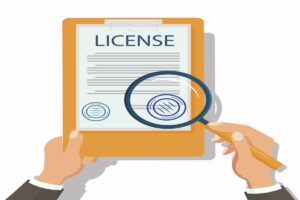Just as Texas teachers are subject to monitoring and regulation by the Texas Board of Education (TEA), so are school principals and superintendents. In addition to the laws that regulate all education professionals, school officials have duties to report certain incidents involving teachers and other school employees to the State Board of Educator Certification (SBEC), a TEA division. SBEC regulates and monitors these certified educational professionals for compliance with laws and regulations that govern their profession. SBEC takes disciplinary action against educational professionals who fail to comply with relevant laws, including school district officials who fail to make mandatory reports to that agency.
An experienced educational license defense attorney at Bertolino LLP can represent your interests in disciplinary proceedings before the SBEC. We can review the allegations of violations that your case involves and work to strategize the most effective defense for your case. When you are facing disciplinary proceedings, you will benefit from the services of an educational license defense lawyer to protect your career. We can provide you with strong legal representation to assist you in minimizing the damage to your career that these proceedings can cause.
Superintendent Reporting Requirements
Certified Educator Employees
Under Tex. Ed. Code §21.006, superintendents or districts of school districts must report to the SBEC when any certified educator resigned or was terminated and evidence exists that the former educator engaged in any of the following misconduct:
- abused or otherwise committed an unlawful act with a student or minor;
- was involved in a romantic relationship with or solicited or engaged in sexual contact with a student or minor;
- possessed, transferred, sold, or distributed a controlled substance;
- illegally transferred, appropriated, or expended funds or other property of the school district, district of innovation, charter school, other charter entity, service center, or shared services arrangement;
- attempted by fraudulent or unauthorized means to obtain or alter a professional certificate or license for the purpose of promotion or additional compensation; or
- committed a criminal offense or any part of a criminal offense on school property or at a school-sponsored event.
Superintendents and directors also must report certified educators who are employed or seeking employment if they have a criminal record and they obtain information about the educator’s criminal record by a means other than the criminal history clearinghouse established under Tex. Gov. Code §411.0845. These school officials also must report certified educators who engage in conduct that violated the assessment instrument security procedures established under Tex. Ed. Code §39.0301.
This mandatory reporting law applies not just to superintendents and directors of school districts, but also to those of districts of innovation, open-enrollment charter schools, other charter entities, regional education service centers, or shared services arrangements.
Superintendents and directors have seven business days from the date of the resignation or termination, or from the date that they learn about the educator’s criminal record to file their reports. Furthermore, even if the educator resigns before the investigation is complete, the school district shall continue to the investigation into the educator’s misconduct to completion. The superintendent or director shall notify the educator and the school’s board of trustees or governing body of the mandatory report.
Non-Certified Employees
Likewise, under Tex. Ed. Code §22.093, superintendents or directors of school districts must report to the commissioner of the TEA when any non-certified employee resigned or was terminated and evidence exists that the former employee:
- Abused or otherwise committed an unlawful act with a student or minor; or
- Was involved in a romantic relationship with or solicited or engaged in sexual contact with a student or minor.
Again, this mandatory reporting extends to superintendents and directors of school districts, districts of innovation, open-enrollment charter schools, other charter entities, regional education service centers, or shared services arrangements.
Principal’s Reporting Requirements
Under Tex. Ed. Code §21.006(b-2), the principal of a school district or other type of school listed above also have notification requirements. More specifically, a principal must notify the superintendent or director of the school district of the resignation or termination of a certified educator if there is evidence of the same type of misconduct that must be reported to the SBEC. The principal must make this report within seven business days of the date that a certified educator is terminated or resigns, or they learn of the criminal history of the educator.
Similarly, under Tex. Ed. Code §22.093(e), the principal of a school district or other type of school listed above also must report to the superintendent or director if a non-certified employee engages in the type of misconduct that must be reported to the SBEC. Again, a principal has seven business days from the date of the employee’s resignation or learning of the criminal history to make this report to the superintendent or director.
Potential Sanctions for Failure to Report
19 Tex. Admin. Code §249.15(a)(6) sets forth the potential sanctions that the SBEC can impose against superintendents or principals if they violate a rule or law that pertains to their profession, including as follows:
- Assess an administrative penalty ranging from $500 to $10,000 on a superintendent or director who fails to file a timely required report or a principal who fails to make a timely required notification.
Furthermore, a superintendent, director, or principal who fails to comply with the reporting requirement with the intent to conceal an employee’s criminal record or an alleged incident of misconduct can face criminal charges. This offense is a state jail felony.
Rely on Bertolino LLP, to Defend Your Teaching License
You need an experienced educational license defense attorney to represent you when you receive a complaint that could negatively impact your license and career. We know how the stakes are during these proceedings and what they could mean for your career. We will tirelessly defend you against SBEC disciplinary proceedings and work to safeguard your license and career. Contact Bertolino LLP today at (512) 980-3751 or visit us online.
Call or text (512) 476-5757 or complete a Case Evaluation form






